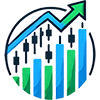How Much Money Do You Need to Start Trading?
Trading in the financial markets can be a lucrative way to grow your wealth, but one of the most common questions beginners ask is: How much money do you need to start trading? The answer depends on various factors, including the type of trading, market, and strategy you choose. In this guide, we’ll break down the costs involved in trading, the minimum capital required, and how to maximize your returns with a well-planned approach.
Understanding Trading Costs and Capital Requirements
Before you start trading, it’s important to understand the different costs associated with it. These include:
Initial Capital: The amount of money you deposit into your trading account.
Brokerage Fees: Commissions and transaction costs for buying and selling assets.
Spreads: The difference between the buy and sell price of an asset.
Margin Requirements: If you trade on leverage, brokers require a minimum deposit.
Other Expenses: Data subscriptions, trading tools, and internet costs.

Minimum Capital for Different Types of Trading
| Type of Trading | Minimum Capital Required | Risk Level | Best For |
|---|---|---|---|
| Stock Trading | $500 – $5,000 | Moderate | Long-term investors |
| Forex Trading | $100 – $1,000 | High | Active traders |
| Options Trading | $1,000 – $5,000 | High | Experienced traders |
| Crypto Trading | $50 – $1,000 | Very High | Speculative traders |
| Futures Trading | $5,000+ | High | Advanced traders |
Stock Trading: How Much Do You Need?
Stock trading requires varying amounts of capital depending on the type of stocks you invest in. If you’re investing in individual stocks, you can start with as little as $500 to $1,000. However, if you want to build a diversified portfolio, $3,000 to $5,000 is recommended.
Ways to Start Stock Trading with Limited Capital:
Invest in fractional shares to own a portion of high-priced stocks.
Use commission-free trading platforms to minimize costs.
Consider ETFs for diversification with lower capital.
Forex Trading: Low-Cost Entry with High Leverage
Forex trading has a lower capital requirement due to leverage. Many brokers allow you to start with $100, but a recommended starting capital of $500 to $1,000 provides more flexibility.
Key Considerations for Forex Traders:
Higher leverage means greater profit potential but also increased risk.
Choose a broker with low spreads and commissions.
Stick to major currency pairs for better liquidity.

Options Trading: Balancing Risk and Reward
Options trading requires a minimum capital of around $1,000, but for more complex strategies like spreads and straddles, $5,000+ is advisable.
Why Start Options Trading?
Lower upfront capital compared to stocks.
Can hedge against market downturns.
Provides leverage with controlled risk.
Crypto Trading: Small Investment, High Volatility
Cryptocurrency trading allows you to start with as little as $50. Many exchanges offer fractional buying, meaning you can invest in a small percentage of a Bitcoin or Ethereum.
Tips for Crypto Traders:
Invest only what you can afford to lose due to extreme volatility.
Choose secure exchanges with low trading fees.
Diversify your portfolio with different crypto assets.
Futures Trading: High Capital Requirement for Big Returns
Futures trading is for experienced traders as it requires a higher capital investment, typically $5,000 or more. The margin requirements are higher, and leverage is often used.
Best Practices for Futures Traders:
Ensure proper risk management with stop-loss orders.
Trade liquid contracts to minimize slippage.
Use demo accounts to practice before trading live.
How to Maximize Returns with a Small Trading Account
If you’re starting with a small trading account, follow these strategies:
Use a Reliable Broker: Choose platforms with low fees and commission-free trading.
Manage Risk: Never risk more than 1-2% of your capital per trade.
Leverage Wisely: While leverage increases profit potential, it also amplifies losses.
Diversify Investments: Spread your capital across different assets to reduce risk.
Follow a Trading Plan: Set clear entry and exit points before making a trade.
Common Mistakes to Avoid When Starting Trading
Overleveraging: Using too much leverage can wipe out your account quickly.
Emotional Trading: Avoid impulsive decisions based on fear or greed.
Ignoring Trading Costs: High fees can eat into your profits over time.
Lack of Education: Trading without knowledge increases your chances of failure.
No Risk Management: Not using stop-loss orders can lead to large losses.
Conclusion
The amount of money you need to start trading depends on the type of market and strategy you choose. While some markets like forex and crypto allow you to start with as little as $50-$100, stock and options trading generally require higher initial capital. Focus on managing risks, using a disciplined approach, and gradually increasing your investment as you gain experience.
FAQs
1. Can I start trading with $100?
Yes, you can start forex or crypto trading with $100, but it is recommended to start with at least $500 for better risk management.
2. What is the safest way to start trading?
Investing in diversified ETFs or blue-chip stocks is safer compared to high-risk trading strategies.
3. Do I need a broker to start trading?
Yes, a broker provides access to financial markets. Choose a reliable and low-cost broker.
4. What is the best market for beginners?
Stock trading and ETFs are best for beginners due to lower risk and long-term growth potential.
5. How can I avoid losing money in trading?
Use risk management techniques like stop-loss orders, avoid overleveraging, and stick to a trading plan.



